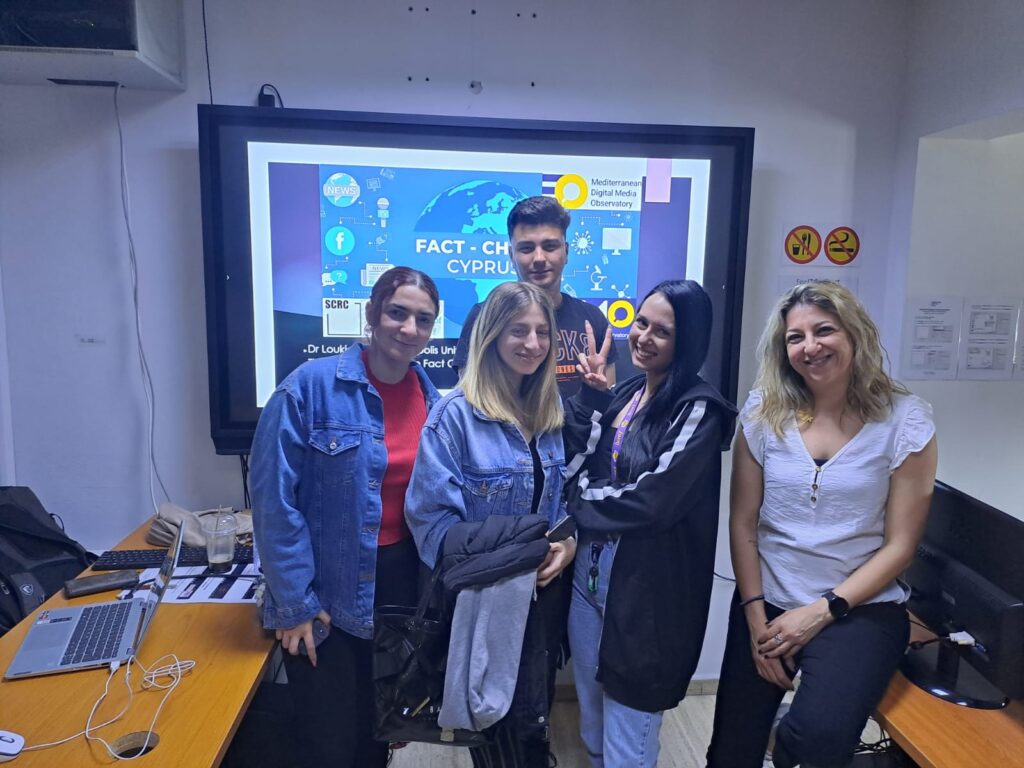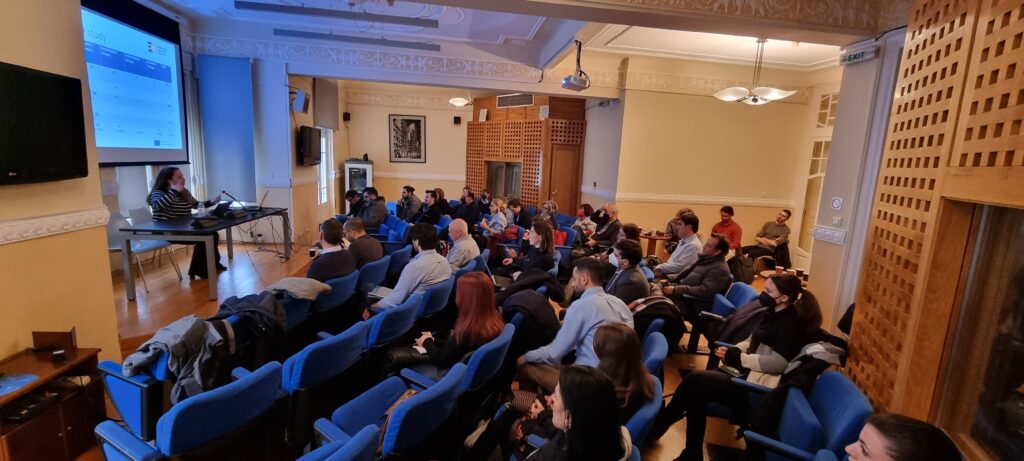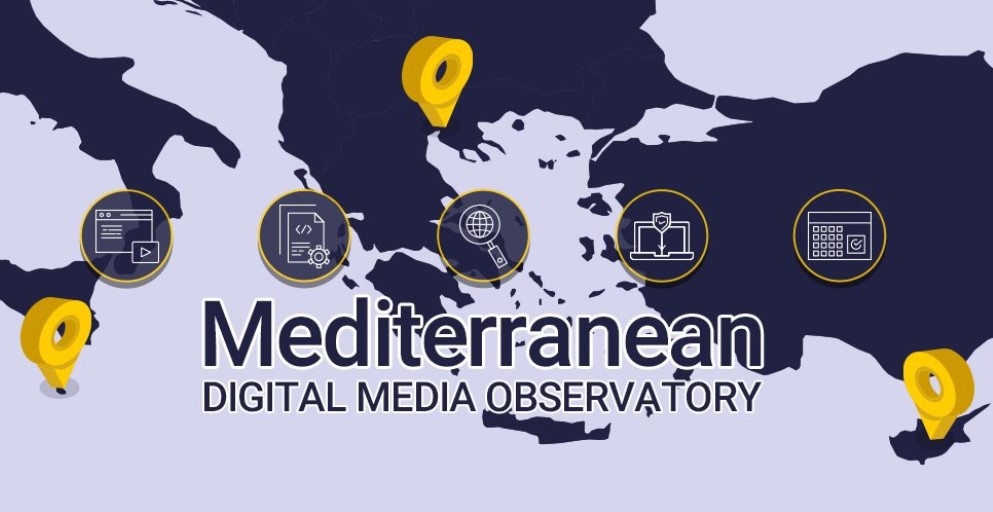Fifteen undergraduate students of the University of Neapolis in Paphos learned tangible ways of identifying and preventing disinformation, following an educational initiative by the Social Informatics Research Unit of TEPAK and Fact Check Cyprus, in collaboration with Greece Fact Check.
The action took place on 10/4 and is part of the mission of the Mediterranean Digital Media Observatory (MedDMO).
The students who come from Greece and Cyprus were taught what misinformation is, what are the types that exist and how to distinguish them, as well as ways to use critical thinking against claims that appeal to emotion and cause fear, anger, hatred, in order to mislead.
At the same time, they were informed about the challenges of artificial intelligence in disinformation and asked, under the supervision of teaching staff, to cross-check an allegation that has gone viral on X (formerly Twitter) and was related to disinformation against the young daughter of Russian dissident Alexei Navalny who he died in a Russian prison last February.
According to TEPAK’s own assessment in a relevant post on its social media, “the results were more than encouraging, with students showing great interest in the subject of combating disinformation and expressing the hope that they will continue to participate in similar initiatives”.





